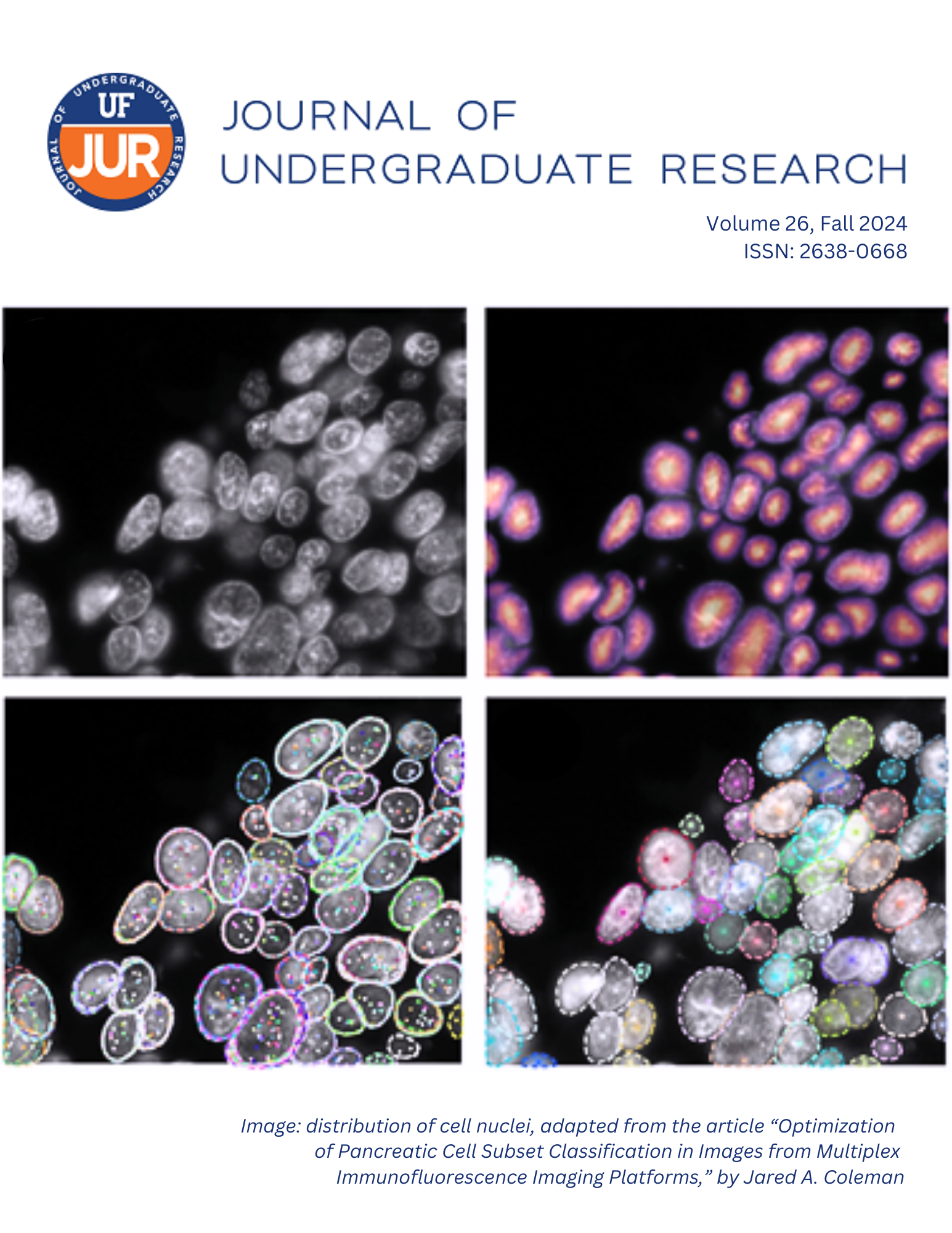Degrees of Desirability
Examining Racialized Sexuality in Late-Colonial Cuba
DOI:
https://doi.org/10.32473/ufjur.26.135325Keywords:
Sexuality, race, gender, cuba, colonialism, 19th-centuryAbstract
This paper investigates how colonial discourses in late 19th-century Cuba invoke discussion of racialized sexuality. I propose “degrees of desirability” as an analytical framework defined by culturally pervasive stereotypes and tropes regarding sexuality as a racialized unit of observation and operationalized through hierarchies against which Cuban women were measured. The term “degrees” signifies quantifiable differentiation or ‘Other-ness’ ascribed to non-White Cuban women, while “desirability” illustrates how colonial narratives objectified Cuban women sexually. Firstly, I analyze how these perspectives classified Cuban women along the axes of race and perceived exoticism, particularly in the contexts of colonial prostitution and conjugal relations. I will then present three distinct essays, each authored by a Spanish or American man contemporaneously, that converge in depicting the Mulatta as the most perplexing instance of established, rigid hierarchies. The Mulatta is characterized by her dual proximity to both Blackness and whiteness, navigating the sexual stereotypes associated with each. Thus, “degrees of desirability” is used to underscore colonial essentialisms regarding the race and sexual affect of Cuban women in this period.
Downloads
Published
Issue
Section
License
Copyright (c) 2024 Lauren Manso

This work is licensed under a Creative Commons Attribution-NonCommercial 4.0 International License.
Some journals stipulate that submitted articles cannot be under consideration for publication or published in another journal. The student-author and mentor have the option of determining which journal the paper will be submitted to first. UF JUR accepts papers that have been published in other journals or might be published in the future. It is the responsibility of the student-author and mentor to determine whether another journal will accept a paper that has been published in UF JUR.

